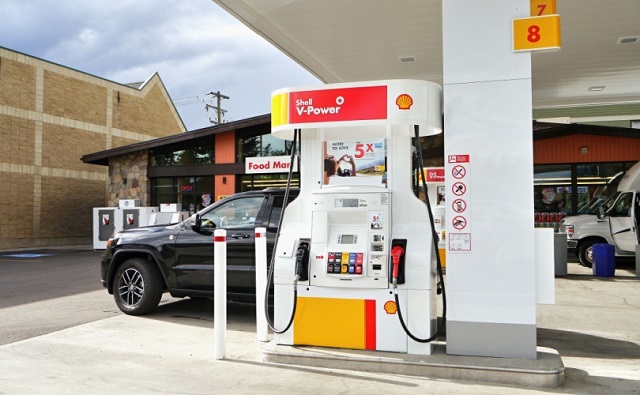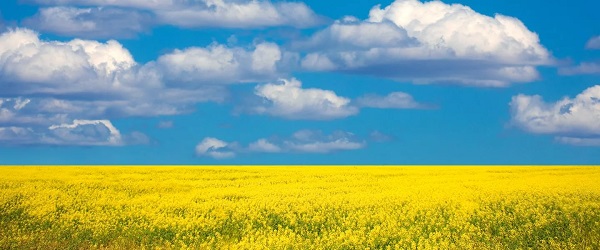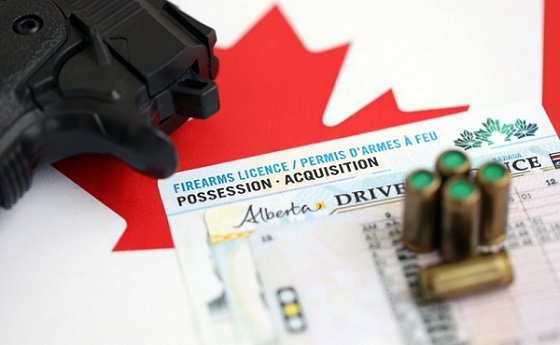Business
Shell scales back emissions goals, says cutting oil and gas production is ‘not healthy’

From LifeSiteNews
The company’s report mentions that its 2035 ‘net carbon intensity’ target has been ‘retired’ due to ‘uncertainty in the pace of change in the energy transition.’
Shell, a major oil and gas supplier in Canada whose federal government has openly called for the end of fossil fuels, announced that it will not meet its planned 2035 emissions targets.
Wael Sawan, the Anglo-Dutch company’s Canadian CEO, noted in Shell’s latest “energy transition strategy” update that “We believe the world will continue to need oil and gas for many years.”
The company had set a target to reduce its so-called ‘net carbon intensity’ to 20% by 2030 but revised the goal to 15%.
Shell said that “cutting oil and gas production,” the objective of the Canadian government, “is not healthy” for the global energy system.
Shell’s report mentions that its 2035 target has been “retired” due to “uncertainty in the pace of change in the energy transition.”
The company still says it has a net-zero target by 2050, but this is not set in stone because “if society is not net-zero in 2050,” then there would be a “significant risk that Shell may not meet this target.”
Shell plans to increase its LNG production by 30%. “Investment in oil and gas will be needed because demand for oil and gas is expected to drop at a slower rate than the natural decline rate of the world’s oil and gas fields, which is 4-5% a year,” the company said.
Other major oil and gas producers such as ExxonMobil, BP, and Canadian company Suncor have all scaled back their own emissions reduction plans.
Faced with the realities of a consumer-driven market and without government interference such as rebates or mandates, studies show that people prefer gas-powered cars over electric vehicles, which are being touted by governments as the saviors to solving what they claim is a “climate change” crisis.
Despite this, Canadian Environment Minister Steven Guilbeault in December 2023 announced the “Electric Vehicle Availability Standard.” The plan is to mandate that all new cars and trucks by 2035 be electric, which would in effect ban the sale of new gasoline- or diesel-only powered vehicles after that year.
Trudeau’s government is trying to force net-zero regulations on all Canadian provinces, notably on electricity generation, as early as 2035. Alberta is adamantly opposed.
Natural gas and coal are abundant in Canada, notably in Alberta, a province in which Shell has a major presence. In the new year, an extreme cold snap sent temperatures plummeting to nearly minus-50 degrees Celsius (minus-58 degrees Fahrenheit) in much of western Canada. It was so cold that the province of Alberta’s power grid almost collapsed due to a failure of wind and solar power.
Alberta Premier Danielle Smith has been a fierce opponent of Trudeau’s green energy agenda. Earlier this month, she said her province will continue to rely on carbon-based fuel sources for power generation for decades to come after introducing sweeping new regulations restricting the development of so-called “renewable” energy generation from wind turbines and solar farms, saying these types of technologies are not the “silver bullet” the federal government claims they are for power generation.
The Trudeau government has gone as far as to say they will not fund new road projects, all in the name of “climate change,” as was reported by LifeSiteNews last month. Both Smith and Premier Doug Ford of Ontario tore into Guilbeault after he said the federal government would no longer fund any road construction projects and instead funnel the savings to “climate change” projects that promote people walk instead of drive.
Smith has been battling the minister for the last few months over his extreme climate change policies that seek to destroy Alberta’s oil and gas sector.
The reduction and eventual elimination of the use of so-called “fossil fuels” and a transition to unreliable “green” energy has been pushed by the World Economic Forum (WEF) – the globalist group behind the socialist “Great Reset” agenda – an organization in which Trudeau and some of his cabinet are involved.
Canada has the third largest oil and gas reserves in the world, with most of it in Alberta. However, since taking office in 2015, Trudeau has continued to push his radical environmental agenda similar to the agendas being pushed the WEF’s “Great Reset” and the United Nations’ “Sustainable Development Goals.”
Business
Storm clouds of uncertainty as BC courts deal another blow to industry and investment

From the Fraser Institute
By Tegan Hill and Jason Clemens
Recent court decision adds to growing uncertainty in B.C.
A recent decision by the B.C. Court of Appeal further clouds private property rights and undermines investment in the province. Specifically, the court determined British Columbia’s mineral claims system did not follow the province’s Declaration on the Rights of Indigenous Peoples Act (DRIPA), which incorporated the United Nations Declaration on the Rights of Indigenous Peoples (UNDRIP) into law.
DRIPA (2019) requires the B.C. provincial government to “take all measures necessary to ensure the laws of British Columbia are consistent with the Declaration,” meaning that all legislation in B.C. must conform to the principles outlined in the UNDRIP, which states that “Indigenous peoples have the right to the lands, territories and resources which they have traditionally owned, occupied or otherwise used or acquired.” The court’s ruling that the provincial government is not abiding by its own legislation (DRIPA) is the latest hit for the province in terms of ongoing uncertainty regarding property rights across the province, which will impose massive economic costs on all British Columbians until it’s resolved.
Consider the Cowichan First Nations legal case. The B.C. Supreme Court recently granted Aboriginal title to over 800 acres of land in Richmond valued at $2.5 billion, and where such aboriginal title is determined to exist, the court ruled that it is “prior and senior right” to other property interests. Put simply, the case puts private property at risk in BC.
The Eby government is appealing the case, yet it’s simultaneously negotiating bilateral agreements that similarly give First Nations priority rights over land swaths in B.C.
Consider Haida Gwaii, an archipelago on Canada’s west coast where around 5,000 people live—half of which are non-Haida. In April 2024, the Eby government granted Haida Aboriginal title over the land as part of a bilateral agreement. And while the agreement says private property must be honoured, private property rights are incompatible with communal Aboriginal title and it’s unclear how this conflict will be resolved.
Moreover, the Eby government attempted to pass legislation that effectively gives First Nations veto power over public land use in B.C. in 2024. While the legislation was rescinded after significant public backlash, the Eby’s government’s continued bilateral negotiations and proposed changes to other laws indicate it’s supportive of the general move towards Aboriginal title over significant parts of the province.
UNDRIP was adopted by the United Nations in 2007 and the B.C. Legislature adopted DRIPA in 2019. DRIPA requires that the government must secure “free, prior and informed consent” before approving projects on claimed land. Premier Eby is directly tied to DRIPA since he was the attorney general and actually drafted the interpretation memo.
The recent case centres around mineral exploration. Two First Nations groups—the Gitxaala Nation and the Ehattesaht First Nation—claimed the duty to consult was not adequately met and that granting mineral claims in their land “harms their cultural, spiritual, economic, and governance rights over their traditional territories,” which is inconsistent with DRIPA.
According to a 2024 survey of mining executives, more uncertainty is the last thing B.C. needs. Indeed, 76 per cent of respondents for B.C. said uncertainty around protected land and disputed land claims deters investment compared to only 29 per cent and 44 per cent (respectively) for Saskatchewan.
This series of developments have and will continue to fuel uncertainty in B.C. Who would move to or invest in B.C. when their private property, business, and investment is potentially at risk?
It’s no wonder British Columbians are leaving the province in droves. According to the B.C. Business Council, nearly 70,000 residents left B.C. for other parts of Canada last year. Similarly, business investment (inflation-adjusted) fell by nearly 5 per cent last year, exports and housing starts were down, and living standards in the province (as measured by per-person GDP) contracted in both 2023 and 2024.
B.C.’s recent developments will only worsen uncertainty in the province, deterring investment and leading to stagnant or even declining living standards for British Columbians. The Eby government should do its part to reaffirm private property rights, rather than continue fuelling uncertainty.
Business
Conservative MP warns Liberals’ national AI plan could increase gov’t surveillance

From LifeSiteNews
Conservative MP Leslyn Lewis raised concerns about the Liberals’ major investment in AI, which could lead to digital ids and loss of freedoms.
Conservative MP Leslyn Lewis is sounding the alarm over the Liberals’ nearly billion-dollar AI infrastructure investment, which could lead to digital IDs
In a December 2 post on X, Lewis raised concerns over the Liberals’ 2025 budget, which funds a $925.6 million “Sovereign Canadian Cloud” and national AI compute infrastructure at the same time as the Liberals are pushing digital identification on Canadians.
“Who audits the algorithms behind government’s new digital systems?” Lewis challenged. “What protections exist for Canadians in this new infrastructure? Who builds it? Who controls it? Who owns the data?”
“Good technology isn’t the issue, our freedoms, surveillance and good accountable governance in a digital era are the real issues,” she warned.
“Digital infrastructure is power, and it must never be implemented in secrecy or without parliamentary scrutiny,” Lewis declared.
Despite spending nearly one billion taxpayer dollars on the project, Prime Minister Mark Carney provides surprisingly few details on how the infrastructure will work and what its purpose will be.
“Budget 2025 proposes to provide $925.6 million over five years, starting in 2025-26, to support a large-scale sovereign public AI infrastructure that will boost AI compute availability and support access to sovereign AI compute capacity for public and private research,” the budget read.
“The investment will ensure Canada has the capacity needed to be globally competitive in a secure and sovereign environment,” it continued.
Alarmingly, the funding comes at the same time as Liberals are moving forward with digital identification systems, despite warnings that they will infringe on Canadians freedoms.
In November, as reported by LifeSiteNews, Liberals moved ahead with digital identification for anyone seeking federal benefits, including seniors on Old Age Security.
Additionally, the Canadian government hired outside consultants tasked with looking into whether or not officials should proceed with creating a digital ID system for all citizens and residents.
Per a May 20 Digital Credentials Issue memo, and as noted by Blacklock’s Reporter, the “adoption” of such a digital ID system may be difficult.
Canada’s Privy Council research from 2023 noted that there is strong public resistance to the use of digital IDs to access government services.
Nonetheless, Conservative leader Pierre Poilievre sounded the alarm by promising to introduce a bill that would “expressly prohibit” digital IDs in Canada.
Critics have warned that the purpose of such IDs is actually to centralize control over citizens. This opinion seems to be mirrored by the general public, with a Bank of Canada survey finding that Canadians are wary of a government-backed digital currency, concluding that a “significant number” of citizens would resist the implementation of such a system.
Digital IDs and similar systems have long been pushed by globalist groups like the World Economic Forum, an organization with which Carney has extensive ties, under the guise of ease of access and security.
-

 espionage2 days ago
espionage2 days agoWestern Campuses Help Build China’s Digital Dragnet With U.S. Tax Funds, Study Warns
-

 Bruce Dowbiggin2 days ago
Bruce Dowbiggin2 days agoWayne Gretzky’s Terrible, Awful Week.. And Soccer/ Football.
-

 Health2 days ago
Health2 days agoCDC Vaccine Panel Votes to End Universal Hep B Vaccine for Newborns
-

 Business2 days ago
Business2 days agoCanada invests $34 million in Chinese drones now considered to be ‘high security risks’
-

 Agriculture2 days ago
Agriculture2 days agoCanada’s air quality among the best in the world
-

 Business2 days ago
Business2 days agoThe EU Insists Its X Fine Isn’t About Censorship. Here’s Why It Is.
-

 Great Reset1 day ago
Great Reset1 day agoSurgery Denied. Death Approved.
-

 Business1 day ago
Business1 day agoThe Climate-Risk Industrial Complex and the Manufactured Insurance Crisis











